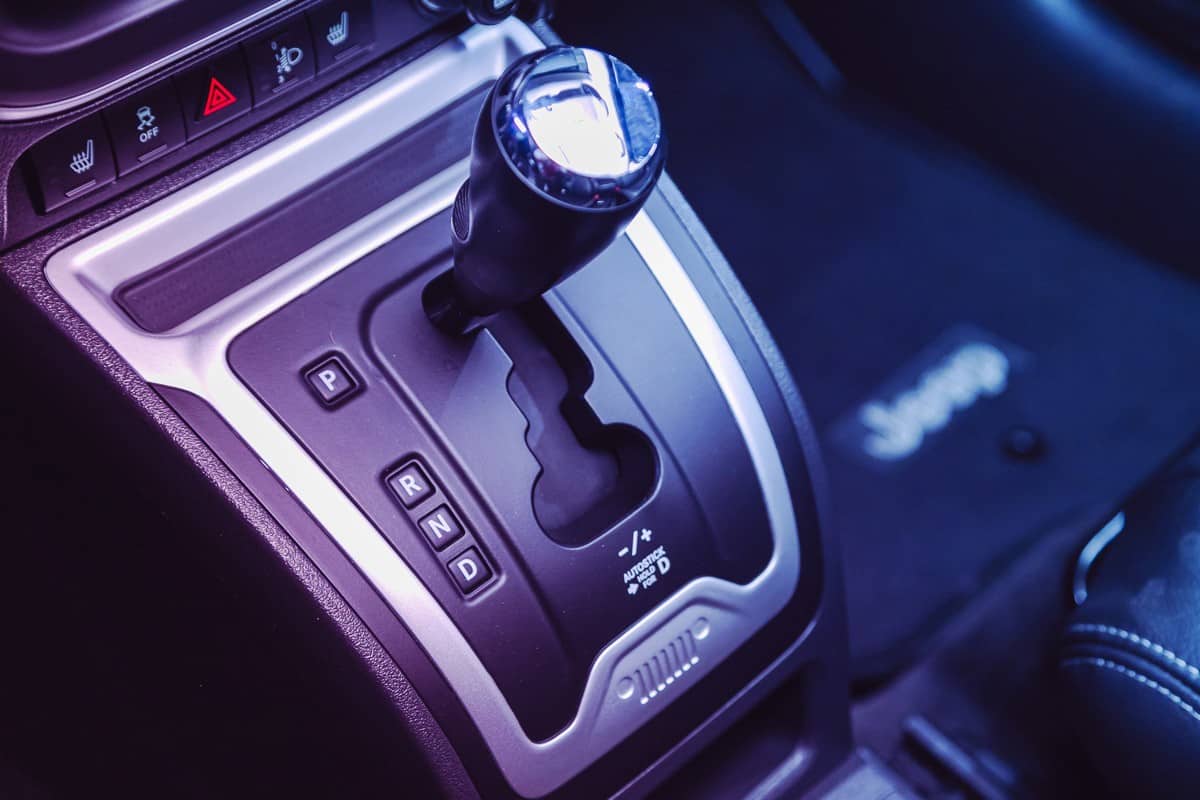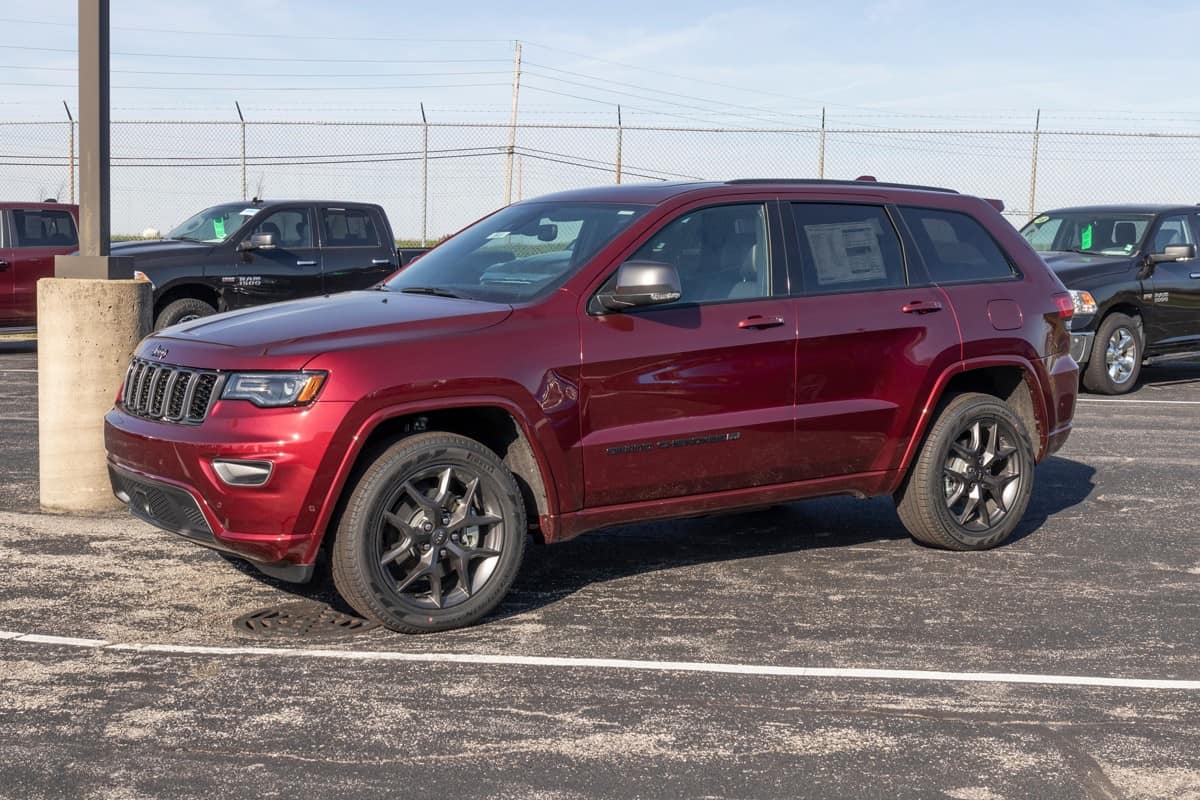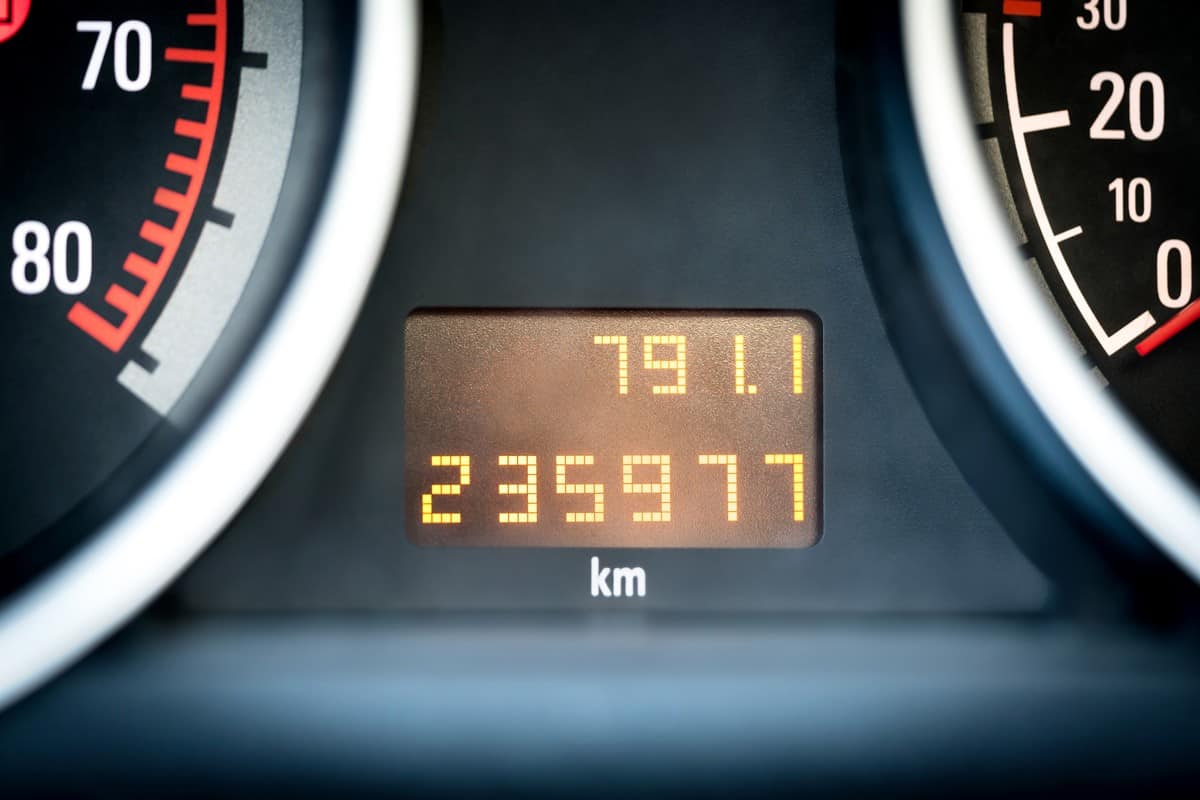Mechanical issues with your vehicle can be extremely frustrating, especially if you are not able to determine the cause. If you aren't able to put your Jeep Grand Cherokee into gear and are wondering why, we can help you find the answer. We researched this popular vehicle in depth so that you'll know for sure what's wrong with it.
If your Jeep Grand Cherokee isn't moving into gear, it is likely due to one of the following problems:
- Low transmission fluid
- Contaminated transmission fluid
- Faulty transmission linkage
- Transmission valve body problems
- Onboard computer failure
Now that we know the reasons why your Jeep Grand Cherokee will not move into gear, we'll take a look at the possible solutions to this problem. You might also be curious how to restart a Jeep transmission or how you know your transmission is going bad in your Jeep. For the answers to these questions and more, read ahead in this post to see what our research has uncovered.
Solutions For Getting Your Jeep Grand Cherokee Back Into Gear
Depending on why your Jeep Grand Cherokee is refusing to go into gear, you may be able to solve the issue yourself. But when it comes to any issue with the transmission, there is a great chance that you're about to pay a visit to a trusted local mechanic.
Earlier in this post, we listed the most likely reasons why your vehicle will not go into gear. Here, we'll look if there are any possible solutions to those problems that you can take on yourself.
Low Transmission Fluid
Without enough transmission fluid, your Grand Cherokee's shifting mechanisms will not be sufficiently lubricated and cooled. While this will do irreparable damage to it over time, it can also keep your Jeep from shifting into gear in the short term.
If your Jeep will not go into gear, the transmission fluid level should be the first thing that you check. There may be a leak that is causing the fluid to become low. If the reservoir is continuing to run empty, be sure to have it inspected so that any leak can be repaired.
Contaminated Transmission Fluid
Should your transmission fluid have somehow become contaminated, it can impact how well it lubricates and cools your transmission. Dirty fluid can also keep the Jeep from shifting. If it has been a long time since you have had this fluid drained and changed, doing so might well solve the issue.
Pay careful attention to the items on your Jeep's maintenance schedule and see that they are followed to the letter.
Faulty Transmission Linkage
A rough ride can sometimes disconnect the linkage or transmission cable. If you are driving a manual, you'll notice this when the clutch goes directly to the floor when pressed. This can be adjusted by you if you have the right tools and workspace but is recommended to have a mechanic take care of it.
Transmission Valve Body Problems
Contaminated fluids can sometimes cause issues with the transmission's valve body. This will require the transmission to be removed and repaired.
Onboard Computer Failure
The Jeep's brain will sometimes have hiccups that can create communication issues between it and the moving parts that it controls. In an automatic transmission, the engine control unit (ECU) is the part that guides the transmission in and out of all the gears.
If you are having problems getting the Jeep into gear, it may be that you need to reset the ECU. In rare cases, the ECU can be defective. Should that be the problem, there is no repairing it; you will have to get it replaced.
How Do You Restart A Jeep Transmission?
Shifting issues can sometimes be solved by restarting the Jeep's transmission. If it is shifting erratically, it's suggested to do a hard reset of this part so you can eliminate several other causes.
This technique will work in automatics and can be done quickly and easily. You will first need to sit in the driver's seat and press and hold the accelerator. Turn the key in the ignition, but do NOT start the Jeep.
Hold down on the gas pedal while the key is in this position for 30 seconds. Then, turn the ignition key back to the "off" position. Finally, release the gas pedal. This will reset the transmission.

How Do You Know When The Transmission In A Jeep Is Going Bad?
A failing transmission will usually have some telltale signs before it goes completely out. If these signs can be detected in time, it can sometimes make the difference between making some minor tweaks and repairs or having to shell out good money for a new or rebuilt transmission.
Paying careful attention to how your Jeep is driving is key. If you notice any of these signs while driving, it's important to get them checked out as soon as possible by the dealership or a mechanic.
You Can Feel The Transmission Slipping
When you are trying to speed up your Jeep, it should smoothly shift from one gear to the next. But if there are transmission issues, this upshift might have some noticeable delays. If this is a problem that you are noticing, it's time to get your transmission checked out.
A slipping transmission could be caused by something simple like low transmission fluid. It might also be that the fluid hasn't been changed in a long time. But it might be something more serious.
Either way, you will need to get it inspected as soon as possible. A slipping transmission will only get worse, and the longer you delay it, the more it can cost to repair.
You Are Having Problems Getting The Transmission Into Gear
Earlier in this post, we covered the most common reasons why you cannot get your Jeep into gear. A faulty or degrading transmission is one of them. If you cannot put your Jeep into gear or are struggling to do so, be sure to have it checked over by the dealership.
The Transmission Is Making Grinding Noises
Any noise that is out of the ordinary should warrant your attention. When a transmission is starting to fail, it can sometimes make grinding and crunching sounds. These usually are not good signs.
The noises will get worse as time goes on, so it's important to get the transmission looked over as soon as you can.
There's A Leak Under Your Jeep
The transmission relies on fluid to keep it lubricated and cooled. Any leak in this system will make this vital fluid seep out, exposing the transmission to friction. Any fluid leaking from the underside of your Jeep should be taken seriously.
Some leaks can be very easy and inexpensive to remedy, while others will take an extensive amount of work. But no matter why the transmission fluid is leaking, it will not get any better on its own.
You Can Smell Something Burning
A failing transmission will sometimes emit a noxious burning smell. This can be due to a lack of fluid that is making the transmission get too hot. Or it could be that there is a buildup of sludge in the transmission that is beginning to burn off.
Just like with sounds that are out of the ordinary, unusual smells need to be addressed as soon as possible.

Can A Transmission Go Out Suddenly?
A transmission will almost always have some warning signs that it is starting to fail. Earlier in this post, we listed the likely signs to look for. But just because a transmission will typically show signs of failing doesn't mean that there's a timetable for how long the transmission will still be usable.
Depending on the symptom, how you drive, and other circumstances, a failing transmission can be operable for days to months. It's best to always be aware of how your Jeep is driving, and address the symptoms as soon as you notice them.
How Long Should A Jeep Grand Cherokee Last?

The Jeep Grand Cherokee has a great history of longevity. On average, you can expect this model to last around 200,000 miles. Some owners have boasted that their Jeeps have surpassed the 300,000-mile mark.
Driving the Grand Cherokee 20,000 miles a year will mean it should last at least a decade. But getting to that point will mean that you need to take great care of the vehicle. The best way to do this is to abide by the maintenance schedule in the owner's manual.
Routine oil changes, filter changes, belt, and hose inspections, and more go a long way in keeping your Jeep Grand Cherokee on the road.

Final Thoughts
There are many reasons why your Jeep Grand Cherokee will not go into gear, some of which can be costly to remedy. Pay careful attention to how your Jeep is driving so that you can have any issues diagnosed and fixed as soon as possible. With proper care and maintenance, you can expect the Jeep Grand Cherokee to last many years on the road. Drive safe!
We hope this post on the Jeep Grand Cherokee answered all your questions. For additional information about this vehicle, we suggest reading the following posts:
How To Reset A Service 4WD Light In A Jeep Grand Cherokee [Step By Step Guide]
My Jeep Grand Cherokee Says Transmission Over Temp – Why? What To Do?
Jeep Grand Cherokee Humming Noise When Accelerating – What Could Be Wrong?

